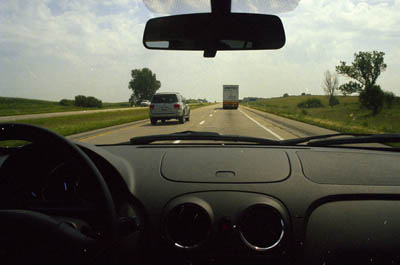Losing an hour sleep during time change can be a problem
As we get ready to move our clocks forward an hour this Saturday night for the start of Daylight Savings Time, ICBC is asking drivers to make an effort to adapt to the time change to help reduce the impact it could have on their driving skills.
According to an ICBC survey, 34 per cent of B.C. drivers admit that the time shift does affect them and make them feel less alert after the time change. Studies show that the switch to Daylight Savings Time can have a dramatic effect on disrupting our regular sleep cycle as it puts us out of sync with our circadian rhythm.
“Daylight Savings signals the transition to spring, which means warmer weather and more cyclists and pedestrians on B.C. roads,” said Mary Polak, Minister of Transportation and Infrastructure.
“We’re asking drivers to get plenty of rest this weekend, give themselves extra time and be cautious in dark morning conditions so they get home to their families safely.”
“A one hour change to our sleep cycle may not seem like a lot but it can be enough to make you less alert and that can be a problem when driving,” said Shirley Bond, Minister of Justice and Attorney General.
“We have to remember that driving a vehicle takes your full attention. Please take the time change into account and drive with the care and attention that is necessary.”
“The change in our sleep cycle can cause unique dangers on our roads as some drivers will feel more fatigued than usual,” said Dr. John Vavrik, a psychologist at ICBC.
“Fatigue is especially dangerous when combined with distractions so it’s important that drivers limit any potential distractions behind the wheel.”
Here are ICBC’s tips to help you adjust to the time change:
- Plan to get to bed early on Saturday evening and go to bed at your regular time on Sunday to be ready for Monday commutes.
- Be aware of how your body adapts to the time change and how that may affect your ability to concentrate and avoid hazards. Studies have shown that time changes can have an impact on the quality of our sleep due to more nighttime restlessness. While you may feel fine, your circadian rhythm can still be significantly disrupted affecting your alertness while driving.
- After many weeks of early sunrises, expect darker morning commutes and more vulnerable road users – cyclists and pedestrians – on the road as the weather warms up.
- Prepare your vehicle for the change in conditions and darker morning commutes. Clean your vehicle’s headlights and check that they are all working properly, both high and low beam and rear lights.


























Comments